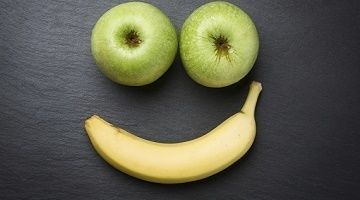Wellbeing
Get some tips this Dry July!
Is #CleanEating ruining your Health?
By Courtenay Turner on
It’s 8am and the sun is peeping through your blinds. Before you’ve even got up out of bed, your fingers find the familiar edges of your iPhone. Passcode entered, screen brightness down, Instagram open: let the onslaught of healthy #foodporn begin.
Paleo pancake stacks, raw vegan bliss balls, dairy-free ice cream, grain-free waffles with superfood sauce… it all sounds too good to be true and it’s all right there, just waiting to be visually devoured.

Without a doubt, the “clean eating” trend currently sweeping social-media sites is an abundant source of inspiration for those looking to take control of their health. It encourages us to experiment with more nourishing recipes and try a more varied range of whole foods. It motivates us eat more real food and less food-like products. It prompts us to move our bodies and connects us with other liked-minded souls.
So what’s the deal? How could #cleaneating possibly be ruining your health?
UNPLUG, DISCONNECT, SEPARATE.
1. It’s never a good thing when the online world takes the place of the real one. If that thing you call your life consists solely of screenshotting recipes, overpowering thoughts about your next meal or obsessing over the perfect 6 pack, chances are it’s not much of a life at all. Your body may be thriving but your mental health sure isn’t.
THEY SAID WHAT?
2. The majority of “clean eaters” are not professionals. They are not dietitians or nutritionists. Sure, there are a lot of these people online too, but most “clean eating” accounts are run by everyday people. This means that many of their choices and the advice they give comes from personal experience. In short: don’t cut out major food groups or stop eating bananas because someone “insta-famous” read that they feed cancer cells. That’s an open invitation for an eating disorder. Seek advice from the professionals if you need or want it. You'd be suspicious taking free food or a free car from a stranger as you don't know if it's dangerous or not - so why take advice about what you put into your body from an unqualified stranger you've never met?

DIRTY EATING.
3. At it’s core, there is nothing inherently wrong with the actual act of “clean eating”. What is wrong, is the labels we are giving to this style of eating. If we exclusively associate “clean eating” with being “good” and “healthy”, then it follows that anything not considered “clean” is “dirty” by association. And we all know that “dirty” = “unhealthy” = “bad”. But hang on a minute - food is not “good” or “bad”, it’s food! Food is not a moral issue and should share no relationship with guilt. Eating something cannot make you an unworthy person, nor can it make you any better than someone else. Labelling a certain style of eating as “clean” attaches negative connotations to many foods and ingredients - and the people that eat them. Would you label a piece of cake lovingly made by your grandma “dirty” and “bad”?
Besides, a paleo or vegan ginormous pancake stack, or choc chunk brownie, or salted caramel fudge cake is still a treat!!
#Cleaneating has had it’s turn, but now it’s time to stop with the labels.
In the words of Michael Polland, “Eat food. Not too much. Mostly plants”. And remember, you don’t have to be perfect 100% of the time.
Originally published on The Body Dietetics
You may also like

Healthy Eating on the Go
By Zoe Bingley-Pullin on
Healthy eating can be tricky to maintain. While we may eat balanced meals at home, upholding the standard can be hard when we are out on weekends or during a busy work week.
It is easy to be tempted by the cheap and nutritionally empty food when we are busy and on-the-run. “Fast food” is quick, effortless and hard to resist, especially when in the company of someone who is not health-conscious.
However, the problem with fast food chains is that they promote overeating. This prevents you from digesting your food properly and is generally an unhealthy way of living.

While it is unrealistic to stick to a strict diet all of the time, it’s important to take note of exactly what we are putting into our bodies, and choose the best options...

Making Food Your Friend
By Leanne Hall on
If you are like most people, you find it impossible to keep up to date with the latest diet “fad”. From the Atkins Diet, the Zone Diet, and more recently the Paleo diet, intermittent fasting diets, and the latest “body transformation” web based programs. All have one thing in common: they promise weight loss…..FAST!
It’s not rocket science, restricting your food intake will make you lose weight. However, keeping it off is where the overwhelming majority of these programs receive an epic…..you guessed it….. FAIL!
So why is this the case, and what can you do instead?

Well, it all starts by taking a long hard look at your relationship with food. Right from when we were kids, we began categorising food as “bad” or “good”...

Top five tips for keeping hydrated during Dry July
By SodaStream on
The Dry July month is the perfect time to reassess all of your health and wellbeing goals for the rest of the year.
Hydration is a key element to ensuring physical and mental performance as our body water content declines with age, from about 75% in babies to 60% in adults.
According to research conducted by Sodastream, there is mass confusion around the effects of dehydration, with only a third (35%) of Australians recognising key symptoms like lethargy, despite the majority (80%) suffering on a regular basis.
Despite many believing that two litres is the recommended daily amount for all, the amount needed varies, dependent on individual factors including age, diet, climate and levels of physical activity.
Sodastream put together 5...